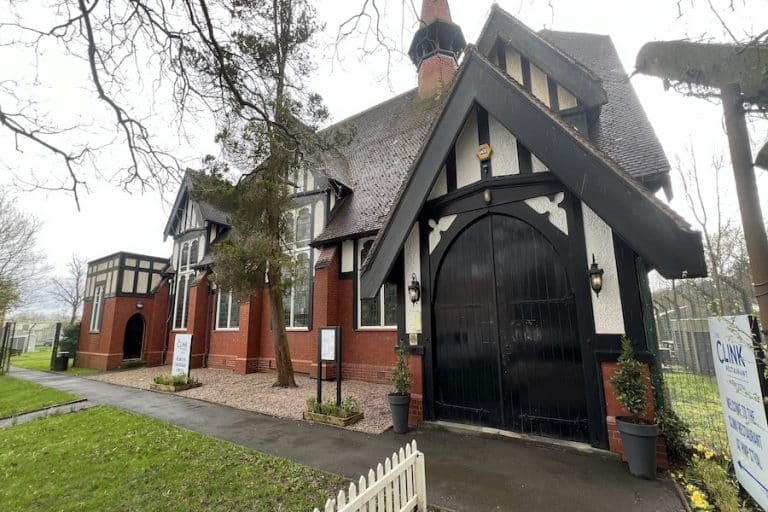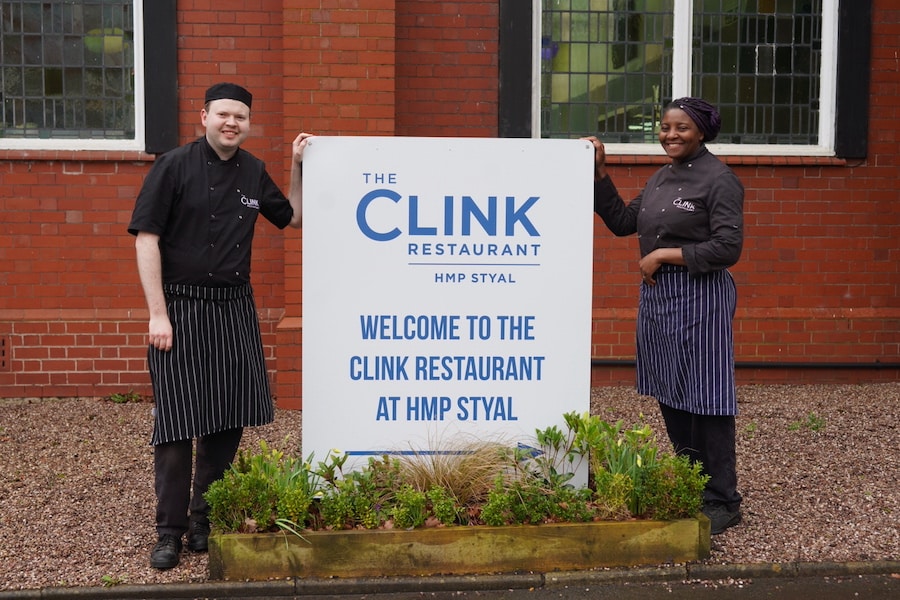Five Writers Made in Manchester
- Written by Emily Oldfield
- Last updated 9 years ago
- Culture
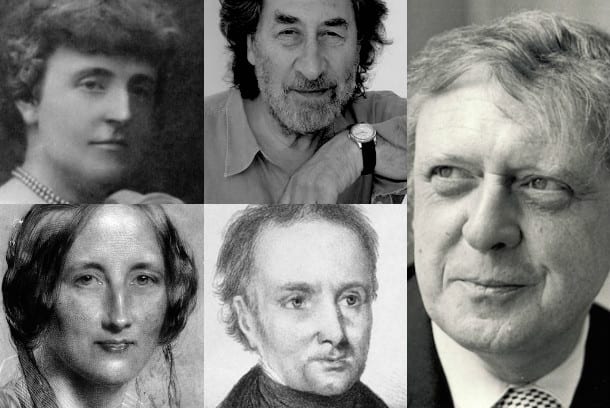
With the Manchester Literature Festival entering its second week, Emily Oldfield celebrates five writers who were born or made in Manchester…
The Manchester Literature Festival is here until the 25th October with loads of events celebrating creativity and cultural exchange throughout the city. So whether you’re into fiction or factual, the speed of slam poetry, or a soon-to-be tram poet penning ideas on the commute, there’s bound to be something for you. This is a city proud of its literary legacy so why not take a look at five fantastic authors it has shaped. Moulded by Manchester and making words in turn, it is a relationship which has led to some exciting (as well as frightening!) pieces of literature and some interesting lives.
1. Francis Hodgson Burnett
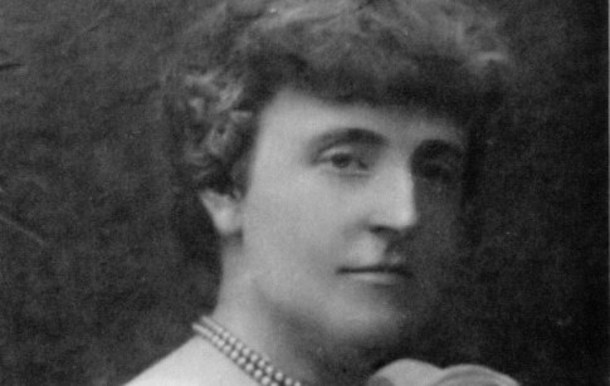
It is surprising to think that the author of the sweet-sounding ‘A Little Princess’ (1905) and ‘The Secret Garden’ (1911) grew up in an area of Manchester so dirty, Frederick Engels commented that it ‘defied description’. Raised both In Manchester and, later, Salford, Burnett used her childhood anguish at the lack of flowers and gardens to turn to her imagination to create it for her. The result – books which are fable-like, full of fairies and animals which still provide a kind of comfort for the times when city life seems too chaotic.
2. Thomas De Quincey
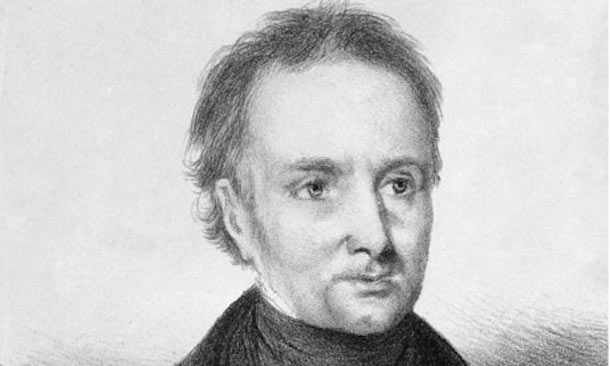
De Quincey was born at 86 Cross Street in 1785, but soon moved to Chorlton-on-Medlock with his family following the early death of his merchant father. A rebel with a cause, it seems he quickly developed an interest in people who have been ‘uprooted’, including the plight of slaves, expressing sympathy with the abolitionst cause later in his life. Writing was his form of speech, as he reflected: ‘But my way of writing is rather to think aloud’ and he showed the power of a well penned word. Yet whilst he tried to end slavery with one hand, he fed an increasing drug habit with the other. He travelled throughout Britain, documenting his life and times as an addict in the famous ‘Confessions of an English Opium Eater.’ In the first part of the largely autobiographical work, he confesses to running away from Manchester Grammar School and describes travels which left him as a homeless young runaway.
3. Howard Jacobson
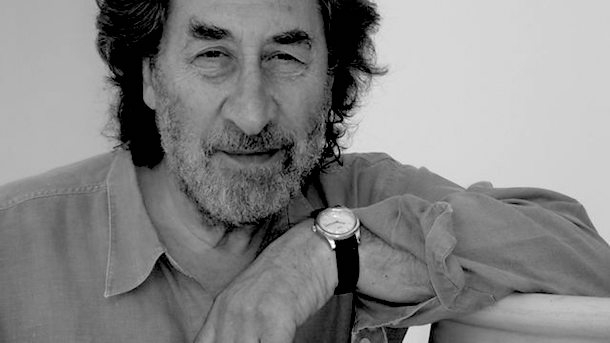
Born in Manchester in 1942 and raised in Prestwich, it was the local restaurant scene which influenced his appetites – perhaps for creativity as well as comfort food. His magician father would regularly take him to Indian restaurants where he said set he enjoyed the food ‘gluttonously’. He describes his younger days in the city as a time when ‘I attach friendship and being in love with food’. Themes of hunger and humanity seem to feature heavily in his novels too, especially his Booker Prize-winning masterpiece ‘The Finkler Question’, which explores issues in Jewish identity through the relationship of two widowed friends. Jacobson’s appetite for exposing people and their prejudices – in a matter-of-fact rather than critical way – appears to have been extended by the influence of Manchester. He writes fondly about growing up on the Manchester Jewish scene of the 1950s, joining youth clubs and playing table tennis, the background to his 1999 novel, ‘The Mighty Walzer.’
4. Elizabeth Gaskell
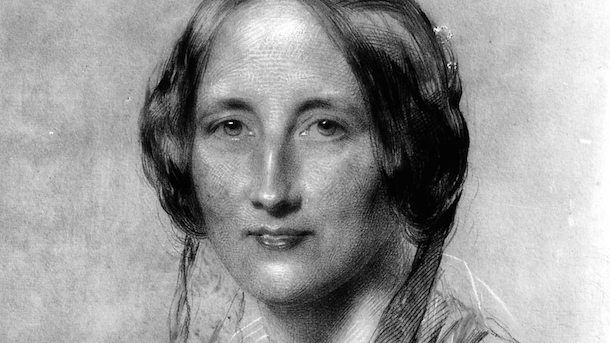
Born in London in 1810, raised in Cheshire, and a frequent visitor to Newcastle and Edinburgh, Elizabeth Gaskell met many ‘characters’ and created even more of her own. After marrying William Gaskell in 1832 she moved to Manchester – and would always be drawn back to the city throughout her life. This was partly because her husband was the minister at the Unitarian Chapel on Cross Street, which you can still visit today. With her husband she co-authored ‘Sketches Among the Poor’ and under an early pseudonym ‘Cotton Rather Than Mills’, wrote as a woman who did not shy away from the city, but invited readers to share its experiences. Her first novel ‘Mary Barton’, subtitled ‘ A Tale of Manchester Life’ was written following the death of her infant son in 1845, and in 1850 she moved with her growing family to 84 Plymouth Grove – not far from the current university campus. You can still visit the impressive villa today and stand where a number of literary greats would have once stood. Charles Dickens was a regular visitor to the house and Charlotte Bronte stayed there at least three times, with Gaskell later becoming her official biographer. Gaskell wrote in a letter of 1850 ‘the work appointed both for my husband and me lies in Manchester’, and it was in the city that she wrote most of her work – especially novels and short stories – helping to pioneer what is known as the ‘industrial genre’.
5. Anthony Burgess
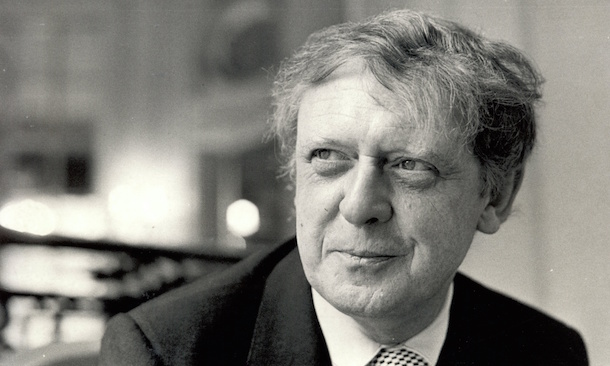
Burgess is best remembered for his dystopian novel ‘A Clockwork Orange’ but he was not just a successful writer of more than thirty novels and twenty five non-fiction works, but also a composer, with works including ‘A Manchester Overture.’ He deserves greater recognition in Manchester, too – the city where he grew up and went to university – as his experience of the city clearly influenced his creative output. He acknowledged it as the place of the ‘best pub’ (plenty to choose from) and also ‘best jokes’ (debatable). Born in 1917 he grew up in Harpurhey and then Moss Side, before attending Xaverian College. He was also in the city to experience the 1927 solar eclipse, which he described as ‘A summer’s day returned to sinful Manchester’; highlighting his love-hate relationship with an area he saw as corrupt, as well as creative. Burgess escaped the routine of the city and in his later years travelled significantly, though the marl of Manchester on much of his work is still clear to see. His autobiography ‘Little Wilson and Big God’ draws heavily on his childhood, whilst the semi-autobiographical novel ‘The Pianoplayers’ explores the life of his father, a local pub-piano player. Burgess explores Manchester with brilliance and brutality, as can be expected from the author of one of the world’s most controversial pieces of fiction.
- This article was last updated 9 years ago.
- It was first published on 20 October 2015 and is subject to be updated from time to time. Please refresh or return to see the latest version.
Did we miss something? Let us know: press@ilovemanchester.com
Want to be the first to receive all the latest news stories, what’s on and events from the heart of Manchester? Sign up here.
Manchester is a successful city, but many people suffer. I Love Manchester helps raise awareness and funds to help improve the lives and prospects of people across Greater Manchester – and we can’t do it without your help. So please support us with what you can so we can continue to spread the love. Thank you in advance!
An email you’ll love. Subscribe to our newsletter to get the latest news stories delivered direct to your inbox.
Got a story worth sharing?
What’s the story? We are all ears when it comes to positive news and inspiring stories. You can send story ideas to press@ilovemanchester.com
While we can’t guarantee to publish everything, we will always consider any enquiry or idea that promotes:
- Independent new openings
- Human interest
- Not-for-profit organisations
- Community Interest Companies (CiCs) and projects
- Charities and charitable initiatives
- Affordability and offers saving people over 20%
For anything else, don’t hesitate to get in touch with us about advertorials (from £350+VAT) and advertising opportunities: advertise@ilovemanchester.com
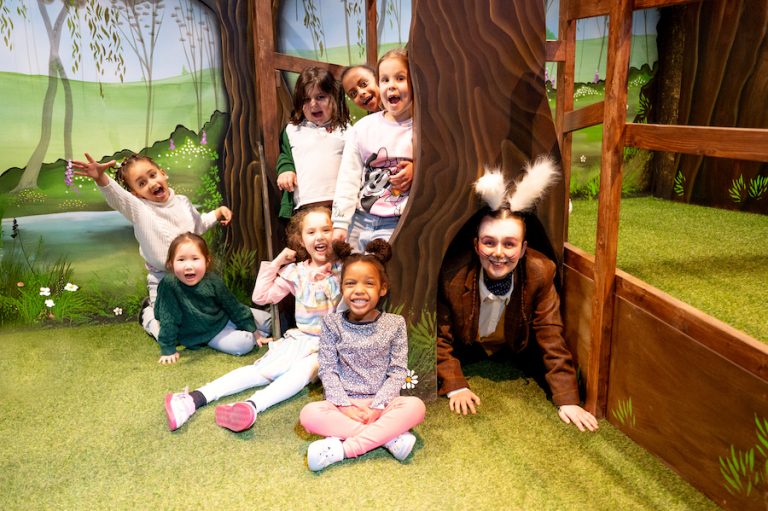
Head down the rabbit hole for Adventures in Wonderland with Z-arts

Major rail investment set to transform Manchester-Leeds commutes

“His presence will be deeply missed” Children’s hospice bids farewell to their visionary CEO

Has Gordon Ramsay created Manchester’s ultimate bottomless brunch?

The Clink celebrates ten years of empowerment and second chances
